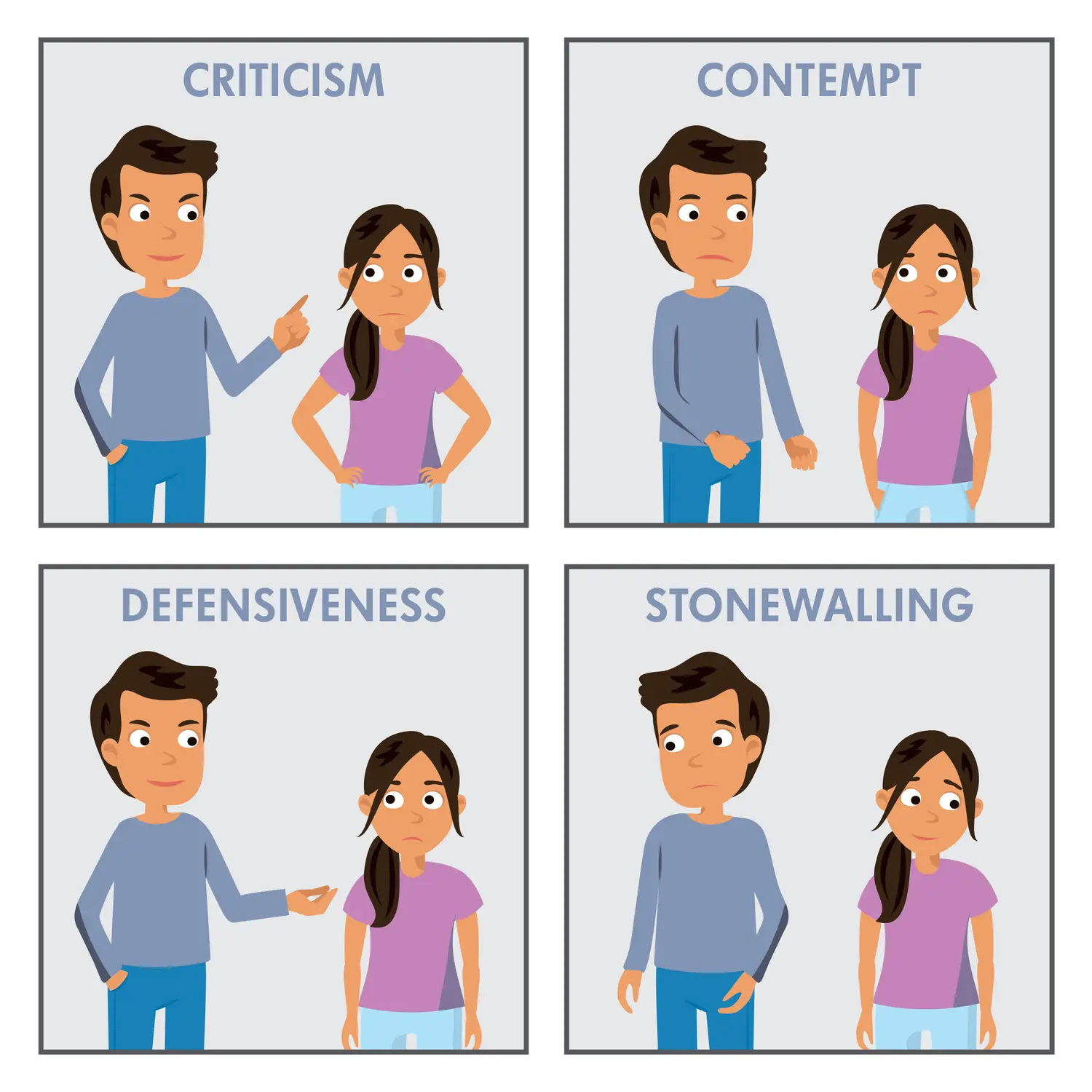Dr. Gottman uses a metaphor to describe communication styles that can predict the end of a relationship. He calls it The Four Horsemen (based on the biblical story of the Four Horsemen of the Apocalypse.) He describes four common communication styles that couples use and how they are not conducive to a healthy relationship: Criticism, Contempt, Defensiveness, and Stonewalling.
Inspired by this idea, we have crafted up a version for teenagers using these same four communication styles and how they play out with parents/adults and teens.

Criticism: verbally attacking someone’s personality or character
Example –
Option A: “Have you studied for your Algebra final yet? I know Ms. Jones mentioned that it was very important for your grade that you do well on this exam. Do you need anything to get started?”
Option B: “I can see you haven’t started studying for your exam yet. It looks like you’re not interested in your grade, even though you know this is important. You never seem to focus on your school work and you’re only interested in texting your friends.”
Parents can be supportive without being unnecessarily critical. Yes, we need to hold kids accountable, but no, we don’t need to insult their character or make them feel rejected or hurt.
Contempt: attacking someone’s sense of self with an intention to assault or psychologically abuse
Contempt includes sarcasm, ridicule, mocking, name calling, eye rolling, or otherwise insulting or mean behavior. Even when teenagers dish it out, adults should never respond in such a manner.
Defensiveness: seeing yourself as a victim, warding off any perceived attacks
Example –
Teenager: “Why didn’t you email my teacher like I asked you to? He said I couldn’t make up my test because he never heard from you!”
Parent (Option A): Sorry but I was busy today, and you just asked me last night and I had too much going on. You need to ask me these things earlier. I have a lot to keep track of! I need more notice. You should have written me a note to remind you. I’m very busy.”
Parent (Option B): I’m so sorry, honey. I forgot to do that. I should have written myself a note or asked you to write me a note to remember. I’ll email him right now.”
It’s easy to slip into defensiveness. But doesn’t it drive us crazy when our teenagers don’t take responsibility for their actions? Think about that. We need to model what it looks like to own up to our mistakes.
Stonewalling: withdrawing as a way to avoid conflict
Stonewalling is when one person completely shuts out the other person, either but withdrawing from the conversation, not responding, evading the topic or tuning out. It can convey to the other person disapproval, disconnection or smugness.
Of course, communicating with teenagers can be tricky. And how teenagers and adults communicate shifts as kids mature and develop. But beware these four horsemen. Avoid falling into the trap of criticism, contempt, defensiveness or stonewalling. Keep the lines of communication open and respectful. Pay attention to your end of the communication to make sure you spot the horsemen before they arrive.
Share with
Related Resources